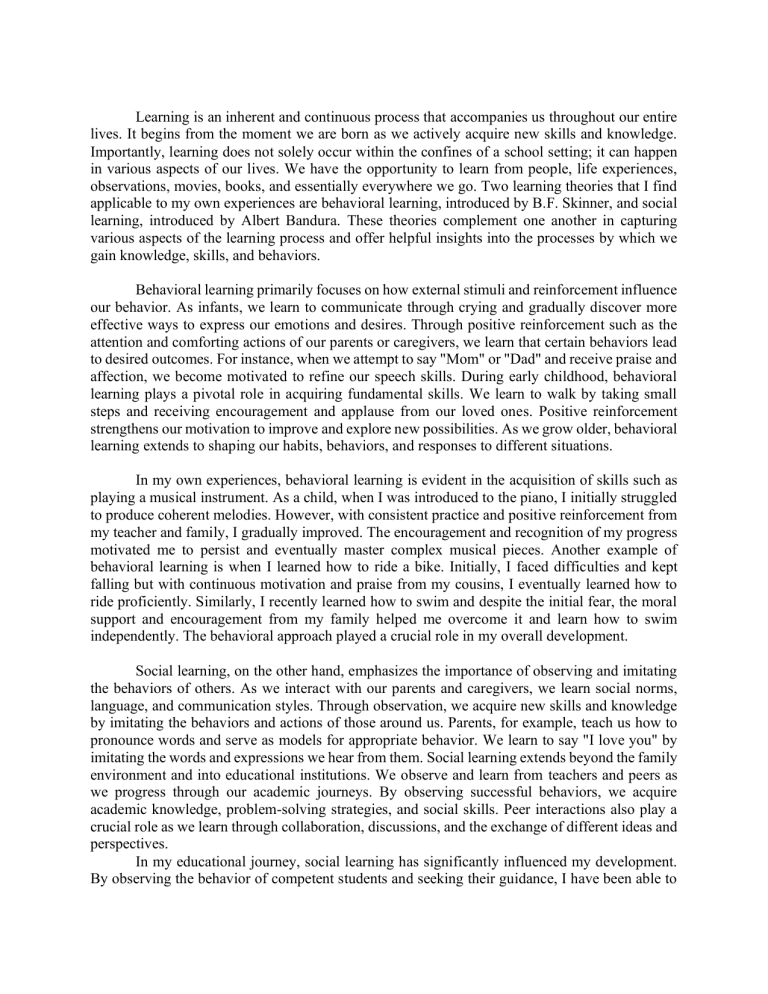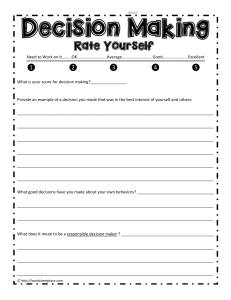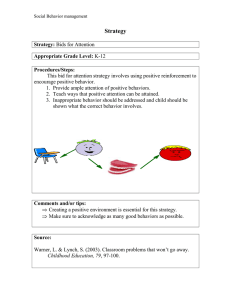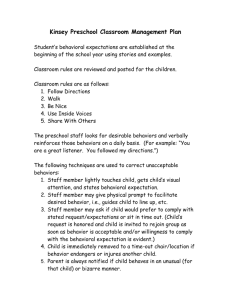
Learning is an inherent and continuous process that accompanies us throughout our entire lives. It begins from the moment we are born as we actively acquire new skills and knowledge. Importantly, learning does not solely occur within the confines of a school setting; it can happen in various aspects of our lives. We have the opportunity to learn from people, life experiences, observations, movies, books, and essentially everywhere we go. Two learning theories that I find applicable to my own experiences are behavioral learning, introduced by B.F. Skinner, and social learning, introduced by Albert Bandura. These theories complement one another in capturing various aspects of the learning process and offer helpful insights into the processes by which we gain knowledge, skills, and behaviors. Behavioral learning primarily focuses on how external stimuli and reinforcement influence our behavior. As infants, we learn to communicate through crying and gradually discover more effective ways to express our emotions and desires. Through positive reinforcement such as the attention and comforting actions of our parents or caregivers, we learn that certain behaviors lead to desired outcomes. For instance, when we attempt to say "Mom" or "Dad" and receive praise and affection, we become motivated to refine our speech skills. During early childhood, behavioral learning plays a pivotal role in acquiring fundamental skills. We learn to walk by taking small steps and receiving encouragement and applause from our loved ones. Positive reinforcement strengthens our motivation to improve and explore new possibilities. As we grow older, behavioral learning extends to shaping our habits, behaviors, and responses to different situations. In my own experiences, behavioral learning is evident in the acquisition of skills such as playing a musical instrument. As a child, when I was introduced to the piano, I initially struggled to produce coherent melodies. However, with consistent practice and positive reinforcement from my teacher and family, I gradually improved. The encouragement and recognition of my progress motivated me to persist and eventually master complex musical pieces. Another example of behavioral learning is when I learned how to ride a bike. Initially, I faced difficulties and kept falling but with continuous motivation and praise from my cousins, I eventually learned how to ride proficiently. Similarly, I recently learned how to swim and despite the initial fear, the moral support and encouragement from my family helped me overcome it and learn how to swim independently. The behavioral approach played a crucial role in my overall development. Social learning, on the other hand, emphasizes the importance of observing and imitating the behaviors of others. As we interact with our parents and caregivers, we learn social norms, language, and communication styles. Through observation, we acquire new skills and knowledge by imitating the behaviors and actions of those around us. Parents, for example, teach us how to pronounce words and serve as models for appropriate behavior. We learn to say "I love you" by imitating the words and expressions we hear from them. Social learning extends beyond the family environment and into educational institutions. We observe and learn from teachers and peers as we progress through our academic journeys. By observing successful behaviors, we acquire academic knowledge, problem-solving strategies, and social skills. Peer interactions also play a crucial role as we learn through collaboration, discussions, and the exchange of different ideas and perspectives. In my educational journey, social learning has significantly influenced my development. By observing the behavior of competent students and seeking their guidance, I have been able to improve my study habits, time management skills, and overall academic performance. Collaborative projects and discussions with classmates have broadened my understanding of various subjects, enabling me to grasp complex concepts and develop critical thinking skills. In addition, social learning has greatly influenced my personal growth beyond academics. Engaging with friends, mentors, and role models has taught me important life skills like effective communication, empathy, and conflict resolution. This approach resonates with me as I naturally prefer observing before taking action which allows me to learn and adapt more effectively. For example, when I observe others facing the consequences of their actions, it serves as a valuable lesson guiding me to make better choices in similar situations. Similarly, witnessing the negative effects of toxic relationships has helped me understand what behaviors and traits to avoid leading to healthier connections and personal well-being. Also, seeing acts of kindness and community service inspires me to do the same. Having positive role models is crucial. When I see my classmates excelling in school, it motivates me to do well too. Likewise, witnessing someone work hard to achieve their dreams inspires me to do the same. Social learning has played a significant role in shaping my personal growth. Through interacting with others, I have gained essential life skills, learned from their experiences, and avoided negative patterns. Positive role models have fueled my motivation and helped me discover my true purpose in life. Moreover, by attentively observing and internalizing positive behaviors and attitudes, I have integrated them into my own interpersonal interactions and personal development. This ongoing process of learning and modeling has significantly contributed to my growth as a psychology student. It enriches my understanding of human behavior and enhances my ability to navigate social dynamics. In conclusion, learning is an ongoing process that encompasses various approaches. Behavioral and social learning theories shed light on how we acquire skills, behaviors, and knowledge throughout our lives. Positive reinforcement, a key aspect of behavioral learning has played a significant role in motivating me to persist in mastering new skills. Similarly, social learning has greatly influenced my behaviors, attitudes, and interpersonal skills. Through observation and imitation, I have absorbed the behaviors and values of those around me integrating them into my own identity and understanding of the world.


